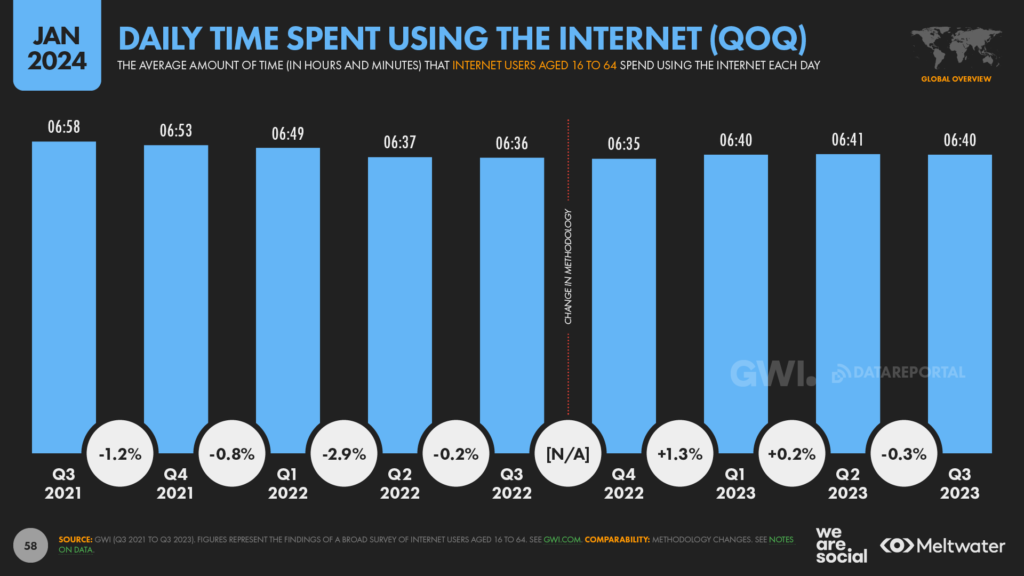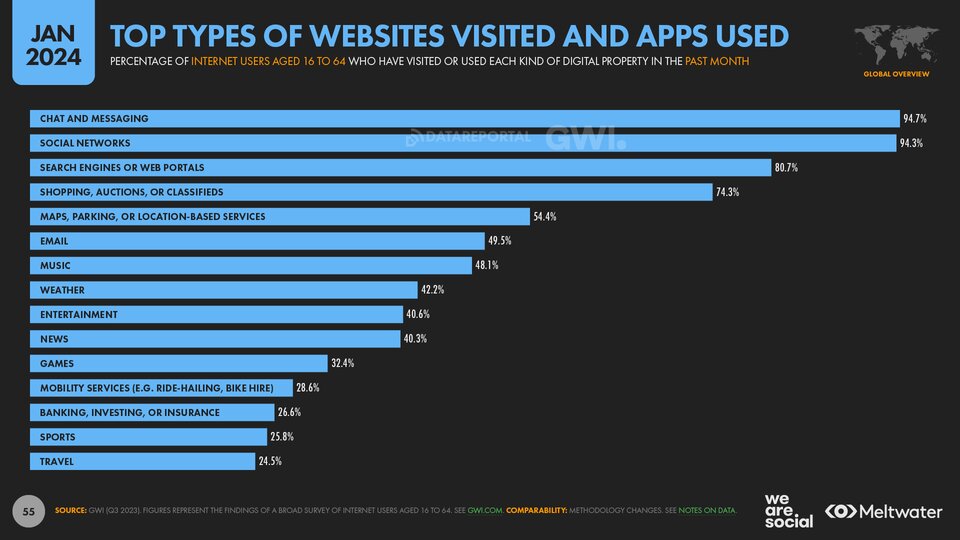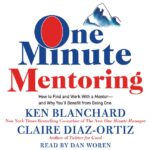At an average of 400 minutes per user, per day, the world will spend a combined total of 780 trillion minutes using this internet this year, which equates to almost 1.5 billion years of collective human existence.
The average person watches about 141 hours of TV per month, or 1,692 hours per year. Assuming you reach the average U.S. life expectancy of 78, that’s about 15 years of your life. 1 American subscription video-on-demand (SVOD) service, Netflix has around 260 million paid subscribers worldwide as of the fourth quarter of 2023. 2 According to the What We Watched: A Netflix Engagement Report, users viewed over 100 billion hours in the first six months of 2023 alone. 3 We spend an average of 3 hours and 15 minutes on our smartphones, and the top 20% of smartphone users have daily screen time of over 4.5 hours. 4 According to the Digital 2024 Global Overview Report 5, at an average of 400 minutes per user per day, the world will spend a combined total of 780 trillion minutes using the internet this year, which equates to almost 1.5 billion years of collective human existence.

We are getting inundated and overwhelmed with data to consume and fill out every little space of boredom. Our smartphones have become an external limb that we can’t do without. Social Media and the internet are some of the most fascinating and pivotal innovations in the past three decades. They have made our lives easier and will probably be one of the tools that could end our present civilization. We are glued to our smartphones, but we rarely listen to each other as we are engrossed in our echo chamber of narcissism and self-absorption. We have all the resources for life-long learning but are becoming less educated. We have all the productivity tools, but we are short of time.

The above stats show that we are watching lots of TV, whether it is through our smartphones, SVOD services (Netflix, Amazon Prime, Hulu) or YouTube. An average human will spend at least 30% of their life sleeping and another 30% working; that is almost 2/3rd of a lifetime. Adding new media consumption to the mix, like watching TV shows, sports events, entertainment, and others, is another 10-12% of our lives. One of our most significant challenges as humans is the illusion of time. We think we have more time; hence, we delay living our lives to the best of our abilities. We use new media tools and platforms such as social media and streaming media to numb our pain, hide from ourselves and avoid doing the work.
Instead of healing the trauma that is making us directionless and rudderless, we get fully immersed in other people’s lives. We compare others’ well-curated highlight reels to our life of strife and struggle. The reality of life is that everyone is struggling with something you know nothing about. We fail to achieve challenging goals because we are easily distracted by these new media tools. As Upton Sinclair once quipped, ‘It is difficult to get a man to understand something when his salary depends on his not understanding it.’ Social Media and other new media tools are great marketing tools for reaching a wider audience. The seduction of getting more leads, clients and customers makes us super glued to our smartphones and apps. Even though we suspect that social media is a major contributor to our mental health issues, we still stay addicted to the platforms. As Upton rightly observed, it is difficult to exit a tool to which one’s means of livelihood is attached.
I know firsthand how tough it is to quit or reduce one use of these platforms. I have deactivated/deleted all my personal social media accounts since 2018. I have not created or shared personal content or commented on a social media post for over five years, and it is by far one of the toughest but most serene moments of my life. Reducing or not using these platforms comes with numerous challenges, such as not getting as many opportunities as one would typically have if one were using them. Imagine what you can do with the
Tell me, what is it you plan to do. With your one wild and precious life? – Mary Oliver, Summer Day
Meditation
Daily Calm with Tamara Levitt – The Missing Place
Many of us grow up hoping to find that perfect person, the one who will complete us and make us feel whole. Many of us learn early on to believe that we are as incomplete as we are, which is why we look to others to erase that feeling of lack.
Relationships work best when people come together with each other and are content with who they are, their sense of self, whole. Wholeness means believing that having someone in your life will not make you better or more, that your quirks, flaws and imperfections are perfectly ok. You can be patient and open as you grow and evolve. It means you are as complete as you are.
“I do not want to have you to fill the empty parts of me, I want to be full on my own, I want to feel so complete I could light a whole city and then I want to have you cause the two of us combined could set it on fire” ― Rupi Kaur
Daily Jay with Jay Shetty – Don’t Click Here
The Information Theory Gap posits that there are emotional consequences when there is a disparity between what you know and what you want to know. You feel deprived, so you seek out any information that would end your deprivation.
Podcast
- Hinge Dating App CEO: The 7 Love & Dating Secrets From Hinge’s Founder! – Diary of a CEO.
All the best in your quest to get better. Don’t Settle: Live with Passion.



Comments are closed.